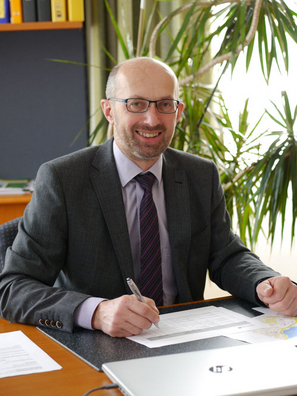We lived at the end of the world

Stáhnout obrázek
Otmar Kowar was born on November 27, 1968 in Gmünd, Austria. He grew up in the Upper Austrian village of Heinrichs bei Weitra near the border with Czechoslovakia. After graduating from the agricultural school in Edelhof in 1987, he worked on his parents‘ farm. He regarded the Iron Curtain, situated just two kilometres away from his home, as a natural part of his surroundings. He had not expected its collapse and was pleasantly surprised by the opening of the border in 1989. After his father‘s death in 2000, he took over farming on his family‘s land and switched to organic production. In 2011 the witness was elected mayor of Unsferau-Altweitra for the first time. In order to be able to hold the post, he had to limit his business activities and he stopped making dairy products on his farm. In 2020, Otmar Kowar was living in village of Heinrichs, farming on his farm and serving as mayor.


